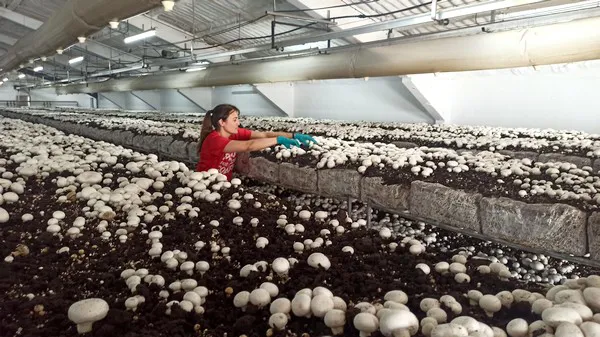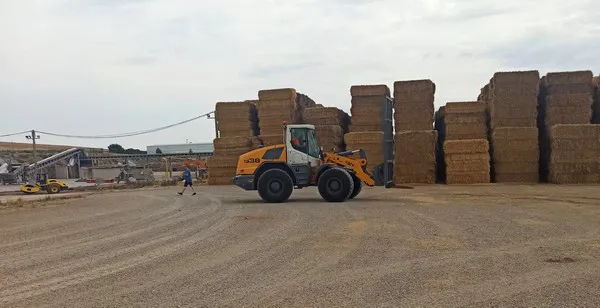One of the many consequences of the severe drought that Spain is suffering, which, fortunately, has been recently alleviated by some rainfall, is the reduction in the harvest of cereals and green fodder, which is having a direct impact on all sectors that need straw as a raw material, including mushrooms.
Straw is an essential ingredient of the substrate in which mushrooms are grown, and its scarcity has caused a rise in prices that is already taking a toll on the fresh mushroom industry, and in a few months, the processing industry will also be affected, after months already dealing with the rise in other material and energy costs.

"It is more than clear that we are facing this situation with concern and uncertainty," says Santiago Salinas, general manager of Eurochamp. "The mushroom production plants that supply us here, in La Rioja, are at a standstill, because in summer we don't produce, but if prices remain as they are now in September, they would make the canned mushroom production almost unviable."
"To imagine the repercussion this has on our industry, you have to take into account that of a 20-kilogram package of compost, 8 kilos are straw. Last year, the price stood at about 45-46 Euro per ton; today we are seeing prices as high as 150 € per ton, but in any case higher than 100 €. In mushroom production, this means between 12 and 15 cents more per kilo produced."
"Fresh mushroom marketing is domestic-bound; there is no direct competition from other countries, so the sector will be able to pass on this increase in the prices, because they will not feel threatened by other operators," says Santiago. "But in our case, canned mushroom marketing is global."
"In Europe, we are the third largest producers of processed mushrooms, after the Netherlands and Poland, and the drought is only affecting us. Neither the Netherlands, nor Poland is suffering any shortage of straw and their costs are now actually lower, because energy prices have gone down. Prices reached their peak last year, so although we will also benefit from the lower energy and packaging prices, we do not believe that the market can withstand the rise that the higher straw prices will bring."

"Today we are talking about prices, but we could be talking directly about shortages"
Eurochamp is a SAT specializing in canned mushrooms; the largest at national level and one of the largest companies in the sector in Europe. Its partners are mushroom growers, who are in turn associated in the SATs of compost plants, "so we control the whole process, from the raw material to the marketing of the final product."
"Last year, the Rioja sector already stayed in contact because of a health problem affecting the crop, and this new challenge has made us understand that we all have to join forces to tackle common problems in La Rioja. And just like other sectors, we are also asking for aid from the public administrations to address the impact of the drought in the mushroom sector."
The Cereals sectoral council of Cooperativas Agro-alimentarias de España has predicted the cereal harvest in 2023 to reach 9.1 million tons, which is almost 49% less than last season and 60.6% less than the average of the last 3 years, and the drop in straw production will inevitably be proportional. "Today we are talking about prices, but we could be talking directly about shortages."
"The extreme lack of rainfall is the main cause behind this all. And if 2023 is worrying, the year 2024 could be even more concerning, because of the influence of El Niño and the possible intensification of the drought."
"That is why it is especially important for us operators to sit down with the administrations and make decisions. This year's decision could be next year's decision," said Santiago.
 For more information:
For more information:
Eurochamp
Carretera de Calahorra, km 1,6
26560 Autol, La Rioja. Spain
Tel.: +34 941 390 078
www.eurochamp.es
